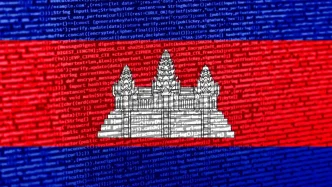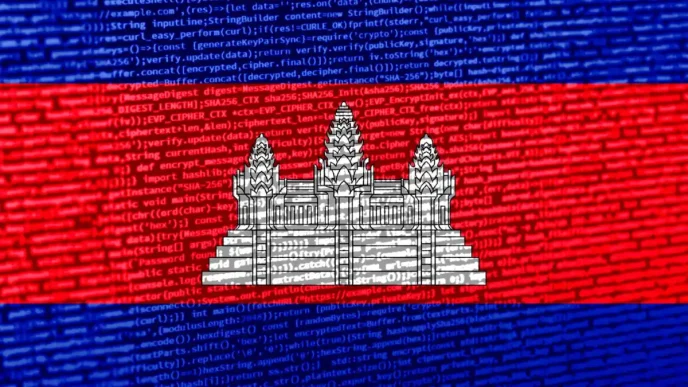In a case that has sent ripples through Singapore’s entertainment industry and raised serious questions about the protection of vulnerable individuals, former actor Ian Fang Weijie has been sentenced to 40 months in jail for sexual offences against a minor. Fang, 35, pleaded guilty on May 19, 2025, to three counts of sexually penetrating an underage girl, with additional charges taken into consideration during sentencing. The verdict, delivered in a Singapore district court, underscores the gravity of exploiting emotional vulnerabilities and the lasting impact on victims.
A Pattern of Predatory Behavior
The court heard harrowing details of Fang’s actions, which spanned several months in 2024. The victim, a 15-year-old student whose identity remains protected under a court-imposed gag order, first met Fang at an entertainment event on May 4, 2024. What began as an exchange of contact details quickly escalated into daily communication, fostering a relationship that the teenager reportedly perceived as romantic. Between June and July of that year, Fang engaged in sexual activity with the minor on nine separate occasions, often under circumstances that prosecutors described as calculated.
Deputy Public Prosecutor Lynda Lee highlighted the deliberate nature of Fang’s actions, noting that he frequently met the girl under the cover of night, suggesting premeditation. On multiple occasions, including during the teen’s quarantine in a hotel for Covid-19 and later while she was hospitalized for a flu infection, Fang exploited moments of isolation to commit the offences. In one instance on June 6, 2024, he visited her at a hotel and refused her request to use protection, marking her first sexual experience. Less than a week later, he repeated the act at his residence after convincing her to leave the hotel for a meal.
The judge, District Judge Eddy Tham, condemned Fang’s behavior during sentencing, stating: “As a 34-year-old adult man, he knew what he was doing. He knew what was likely to take place each time he visited the victim.” The judge further noted that Fang’s actions were not a one-off lapse but a sustained pattern of taking advantage of the girl’s emotional vulnerability.
Manipulation and Emotional Harm
Beyond the physical offences, the court revealed the psychological toll on the victim. After police investigations began, Fang defied instructions not to contact the girl and used social media to pressure her. He urged her to convince her mother to withdraw the charges and, in a particularly distressing move, threatened to commit suicide if faced with imprisonment. Prosecutors described this as an attempt to “gaslight” the victim, prioritizing his own interests over her well-being.
The impact on the teenager has been profound. DPP Lee informed the court that the girl developed depression and experienced suicidal thoughts following Fang’s persistent contact. She was later admitted to the Institute of Mental Health, where she was diagnosed with adjustment disorder. “She lost her confidence and was no longer happy. She will continue to live with the burden of Mr Fang’s actions, even with the conclusion of this case” said DPP Lee, capturing the enduring harm inflicted.
Background of a Public Figure
Fang, once a familiar face on Singapore’s national broadcaster Mediacorp until his departure in May 2023, was working as an acting teacher at First Model School—a modeling academy for children aged four to 14—at the time of the offences. His public profile added a layer of complexity to the case, as his defense argued that he sought to keep the relationship private to avoid unwanted attention rather than to conceal wrongdoing. “His intention was to avoid speculation that might arise from the relationship, rather than to conceal any wrongdoing” said his lawyer, Ms Noelle Teoh, in mitigation.
However, the prosecution countered that Fang’s status as a former actor and teacher placed him in a position of influence, amplifying the betrayal of trust. The lifting of a gag order on Fang’s identity, following a request from the victim’s family and approved by Judge Tham, further signaled the importance of public accountability in such cases, even as the victim’s anonymity remains safeguarded to prevent additional harm.
Legal and Societal Implications
Fang’s sentencing to 40 months, with his term set to begin on June 16, 2025, reflects Singapore’s stringent stance on sexual offences, particularly those involving minors. The city-state’s legal framework prioritizes the protection of vulnerable individuals, and this case reinforces the judiciary’s commitment to holding offenders accountable, regardless of their public standing. The inclusion of additional charges—such as harassment and obstructing the course of justice—during sentencing also underscores the broader scope of harm caused by Fang’s actions.
Yet, the case raises deeper questions about societal safeguards. How could a figure in a position of authority, working directly with children, exploit a minor over an extended period without earlier intervention? Fang’s role as an acting teacher at a school for young children has sparked concerns about vetting processes and oversight in institutions dealing with vulnerable populations. While there is no evidence to suggest broader systemic failures at First Model School, the incident highlights the need for robust mechanisms to detect and prevent predatory behavior.
Moreover, the psychological impact on the victim points to gaps in support systems for survivors of sexual offences. While Singapore has made strides in providing counseling and legal protections, the lasting trauma described in court—depression, loss of confidence, and adjustment disorder—suggests that recovery can be a long and arduous journey. Advocacy groups have long called for enhanced mental health resources and community education to empower young people to recognize and report inappropriate behavior.
Public Reaction and Future Outlook
The sentencing has elicited strong reactions from the public, with many in Singapore expressing outrage over Fang’s exploitation of a vulnerable teenager. On social media platforms, discussions have centered on the responsibility of public figures to uphold ethical standards and the importance of protecting minors from predatory behavior. Others have voiced sympathy for the victim, emphasizing the need for compassion and privacy as she navigates the aftermath.
As Fang prepares to serve his sentence, the case serves as a stark reminder of the power imbalances that can exist in relationships involving minors and adults in positions of influence. It also prompts a broader reflection on how society can better shield its most vulnerable members from harm. While the legal chapter may be closing for now, the emotional and social reverberations of this case are likely to linger, prompting ongoing conversations about accountability, trust, and healing in Singapore.
















